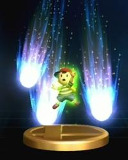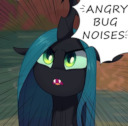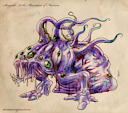Side Material: The Parable of Merchant and Goddess
When I was as young as you are now, there was a rich, rich merchant in the Southern deserts, before the horsemens' knowledge of the waters made them bloom with green, and he had a beautiful daughter. She was brilliant as well, and for her he hired the best tutors so that she might master his business, and to protect her virtue he hired the greatest teachers of the fighting arts to teach her their secrets.
As she grew, the merchant's daughter was wise all past her years. But, she was only mortal, and on the cusp of womanhood she fell ill with a terrible and strange disease. Her hair came out, in pieces, and mocking burns fell upon her face and arms, and the merchant's best physicians could only ease her pains and lance the boils that marred her beauty using the calming oils of the singing trees that grew in rare oases of the South.
His physicians could not heal her, and so the merchant called for priests and shamans from across the South and farther. Each prayed and anointed her with blessings and thaumaturgies, and each failed. Only a wisp of a priestess was left when the others had gone, a girl of the North with silver hair braided with feathers and with three ceremonial hatchets on her hips. "My goddess is the Darling Imn, the Hawk of Ice and Sand," she said, "and I cannot heal your daughter, but my goddess might."
"How would she heal my daughter, and why?" asked the merchant. He feared the hands of gods and elves as he did not fear the hands of the priests, for gods and elves are ever fickle and know not the fears of men.
"She is not a god of sickness," said the priestess, "but she knows the ways to trick the green vapors that cause this disease and draw them away." The priestess prayed and anointed the merchant's daughter with blessings and thaumaturgies. "To find her you must go five days South into the desert, and always have the Hawk of Ice and Sand in your heart, and pray for her at sundown, when the Daystar just touches the horizon. Then you will meet her. You must go alone with your daughter."
When the priestess had left, it was with the pains of the merchant's daughter eased by her craft, where the other priests had been unable to help. Hope grew in the merchant's heart. The next morning the fever had returned, and the merchant had a wagon prepared for himself and his daughter, shielded against the sun, with eleven days of supplies, as was traditional for suicide marches into the sand. At great expense a three-tailed devil beast was harnessed, and it led the wagon out across the sand.
On the fifth day, an hour before sunset, the merchant gathered his daughter into his arms and left the wagon behind and began to walk. As the Sun touched the horizon he knelt and prayed, and his daughter whispered the prayers alongside him with a broken throat.
"You may stand," said the goddess from behind him, and he stood, and turned, with his daughter, and a verdant oasis lay where there had been sand, though half the trees were made of tin and brass, and the water was laid in a pool of silver sand. The goddess was a thing of outlines and sand-shadows, and about her shoulders she wore a cloak of unmelting ice of the farthest North, and at her hips she wore three strange axes. "You have come with her sickness," the goddess said, and she gestured him to the sand beside the water, and they sat.
"I am not a god of sickness, but here, watch," said the goddess, "as I draw the tainted spirits into her hand." And then with one of her axes, bright as the dawn, she cut one of the maiden's hand's off. The stump bled black and then hardened like iron. The merchant trembled in fear for his daughter's life, but did not speak, with the knowledge that gods were strange and fickle. He was a rich man, and his daughter might live well with one hand and well-paid maids.
"But that is not the all of them," said the goddess, "but here, watch, as I draw the rest to her foot." And then with another axe, shimmering like a mirror, she cut one of the maiden's feet off. The stump bled green and then hardened like brass. The merchant was hot and cold at once, but he had no soldiers or guards at the oasis, and he was not a warrior. He was a rich man, and his daughter might live well with one hand and one foot and well-paid maids.
"But that is not all of them," said the goddess, "but here, watch, as I draw the rest to her hand and foot."
"No," said the merchant, and he shook in fear, but he did not move.
"No?" said the goddess, and she looked at him, and she raised up her axes, and her cloak of ice was limned with icicle-knives.
"No," he said, and with her third axe, glimmering like the mist of morning, the goddess cut off his head. The stump bled ruby-red and did not harden. Watching, the daughter's heart broke, and all the good parts of her died. That was the trick of the green vapors, for then they thought all of her had died, and they left. The goddess caught them in a tin box, and then she left, riding away on the winds. The daughter wept and fell asleep on the sands.
In the morning the daughter's fever broke, and her boils subsided, and when she woke in the sand with the oasis gone, she hobbled to the wagon on one foot and one hand. She left her father's body and head in the sand, but for his signet ring, and returned home.
When she claimed her father's business, she found all the evils that had her father had done to become wealthy, and she stamped them out. Without those evils the business was broken and she became a beggar in the streets. Sometimes the wise came to her to ask her questions, for she knew all the secrets of health and sickness and wealth and poorness. But the rest is a different story, for a different day.
Yes, young one?
Oh, no. That is not the moral of the story. The moral of the story is: gods are cruel bastards. Stay away from them.
- Viewing 1 - 0 of 0
- Viewing 1 - 0 of 0










